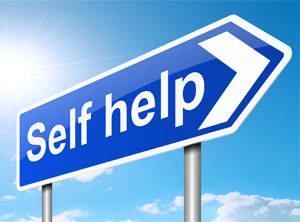Self Help as Magic April 17, 2017
Author: Beach Combing | in : Contemporary , trackbackThe literature on self help dates back to the book of Proverbs and Cicero, but in its modern multi-billion dollar form it has a particularly American imprint: Dale Carnegie, Anthony Robbins, Brian Tracy and Napoleon Hill among the most interesting. Most self help coaches stress the science of self help: life changes are given as formula that we can work in our lives infallibly.
Yet much of the ‘science’ is, in fact, based on discarded psychological theory or theories that never went mainstream. This much is well known and is sometimes tacitly admitted by practitioners. This blogger, however, has been struck in reading self help literature at how much this ‘science’ owes to the western mystical tradition and this is something that has not generally been appreciated.
The western mystical tradition is (for the uninitiated) a rather acrid, ill-blended soup made up of pagan memories, Christian rituals and words, regurgitated Greek and Roman insights and the inventiveness of a series of cunning folk, half mystics and half swindlers. Magicians/saints/witches/fairy doctors cured and cursed, sought out treasures, and tried to read the future with spells and by mastering invisible forces: often supernatural entities. Self help has some striking similarities here.
First, there is a tradition within the Self Help movement of using spirit guides. This is most evident in the works of Napoleon Hill who had his own spirit guides and claimed that most famous men and women had reached their level of success thanks to invisible helpers. It is there, though, too, in the chapters in spirituality in the works of other authors where a ‘higher power’ is acknowledged and the user is advised to interact with the same.
Second, there is the belief in visualization. I want a yacht? I continually imagine myself buying the yacht, sailing the yacht, enjoying the yacht… In some cases this visualization is given an almost magic quality: Anthony Robbins claimed that one of his followers won the lottery twice thanks to intense need and visualization. It is difficult to reduce this technique to science. Visualization is a fundamental part of modern magic traditions. It seems to be an implicit part of spell casting in the ancient, medieval and modern world, though it is rarely directly referred to. For instance, the spell for cursing my neighbour seems to presuppose that I will be concentrating and imagining my neighbour suffering while I collect herbs, walk around a church anti-clockwise at midnight etc etc.
Beach doesn’t do magic – though he has an unhealthy fascination for spells – and he doesn’t much care whether self help is scientific or not according to the narrow and perhaps flawed canons of academia. Nor can he bring himself to be snobbish about the self help movement: the capacity of individuals to creatively recast their lives is one of the most wonderful things in human nature. But he does enjoy the thought that self help is just the most recent in a long line of magical schools, going back through theosophy, spiritualism, magnetism, Neo Platonism… to the foot of the Pyramids.



